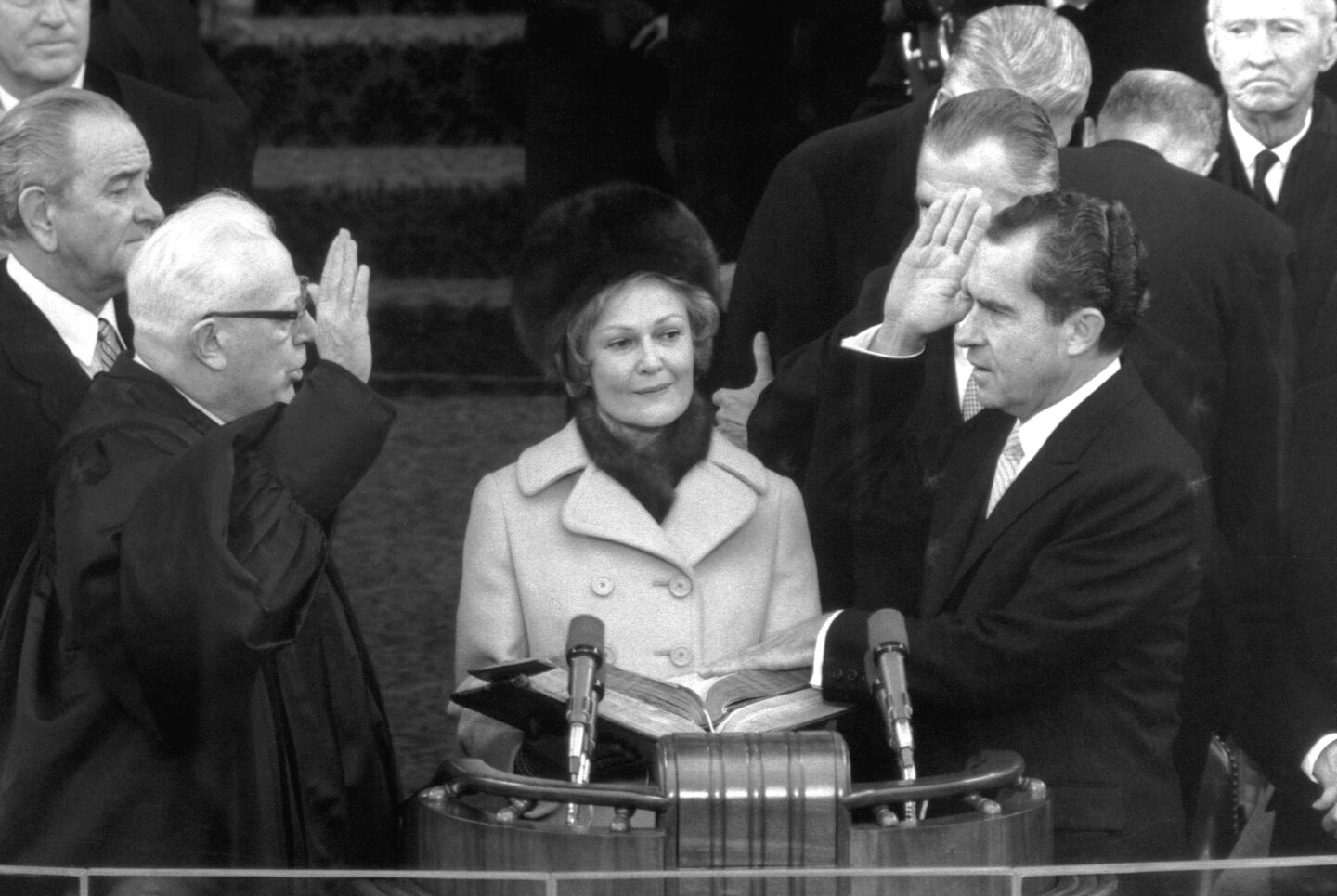Chief Justice Earl Warren in 1968. (Bettmann archive/Getty Images
The decades-long feud between Earl Warren and Richard Nixon
Earl Warren was born in Los Angeles on this day in 1891. As a Bay Area prosecutor, California attorney general, California governor, and Chief Justice of the U.S. Supreme Court, Warren was the rare sort of public official who was broadly admired across the political spectrum.
But he had his enemies, notable among them another son of California: Richard Nixon. Warren disliked the fellow Republican’s red-baiting and refused to endorse his campaigns for Congress in 1946 and 1950.
Years later, as Warren sought the presidency, Nixon surreptitiously undermined his bid during the 1952 Republican National Convention, urging California’s delegates to support Dwight Eisenhower. Nixon was rewarded with the vice presidency under the former general. Warren would later tell people how “Nixon cut my throat from here to here,” gesturing with his finger across his neck, according to Nixon biographer John A. Farrell.

Corbis via Getty Images
The vendetta between the men largely faded into the background after Eisenhower appointed Warren to lead the Supreme Court. But it never disappeared altogether. On Warren’s deathbed in 1974 — with Nixon in the White House and the Watergate scandal burgeoning — the 83-year-old was visited by two former colleagues on the Supreme Court.
Nixon can’t be allowed to twist the law, Warren advised them. The justices assured him that they would force the president to surrender potentially incriminating White House tapes. Relieved, Warren died that night. The recordings were made public two weeks later, and Nixon was shuffled into the ranks of America’s most disgraced political figures.
This article is from the California Sun, a newsletter that delivers must-read stories to your inbox each morning . Sign up here.
Get your daily dose of the Golden State.